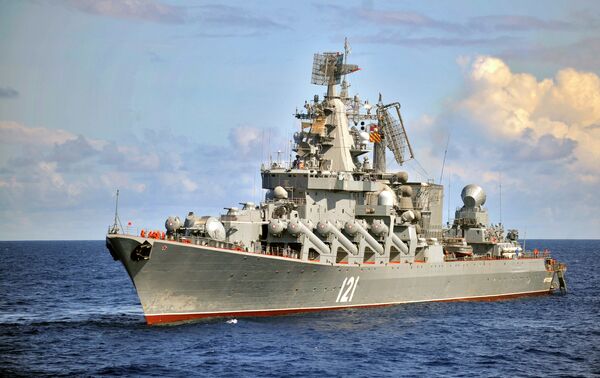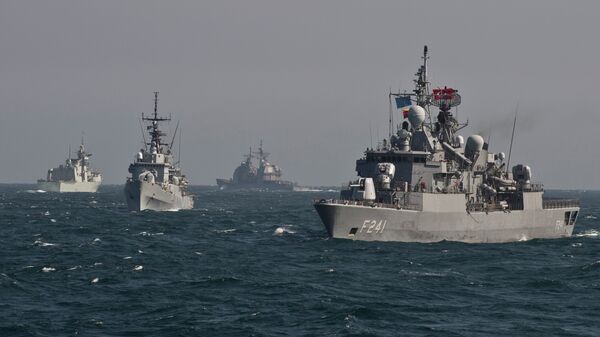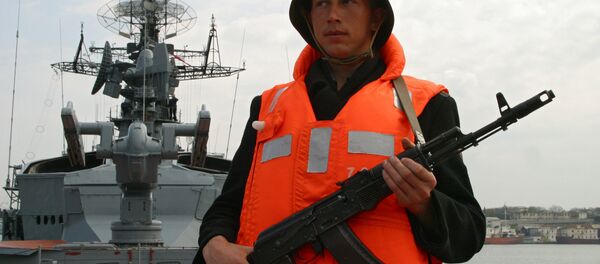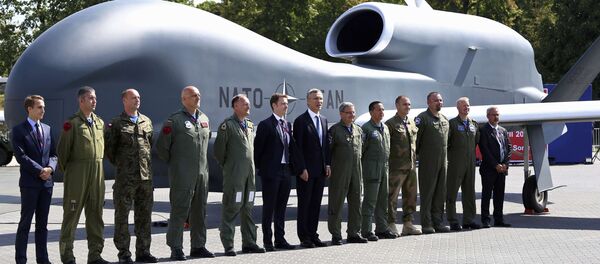Washington is preparing to enter a global naval competition in the light of Russia and China's rise.
Despite the fact that the US is neither a Black Sea nor a Southeastern Asian state, it continues to push ahead with a bid for dominance in the regions.
"One of the greatest challenges to American interests abroad is in keeping the world's oceans open to commerce and activity. From Russia dominating the Black Sea to China constructing man-made islands in the South China Sea, it is apparent the US Navy must be prepared for growing threats," Brian Slattery and Mary Monica Allen of the influential Heritage Foundation wrote in their article for the Daily Signal.
"For the first time in twenty-five years, the Navy is facing a return to great power competition at sea," Manazir emphasized.
"Russia and China have a growing arsenal of high-end warfighting capabilities, engage in coercion and competition and have global reach. Provocation from Iran and North Korea continue to create instability in the Middle East and the Western Pacific," he stressed.
Manazir pointed out that the US Navy "continues to provide the maximum sustainable global presence" to accomplish Geographic Combatant Commanders' (GCCs) tasks.
"Today, we have four aircraft carriers forward deployed — John C Stennis and Ronald Reagan in the Pacific, and Dwight D. Eisenhower and Harry S. Truman in the Mediterranean and Middle East," the rear admiral stated.
However, Russia's efforts aimed at strengthening its Black Sea periphery appear to have become a thorn in the Pentagon and NATO's flesh.
"The Black Sea is the biggest crack [in NATO's European security architecture] of all. It is hugely vulnerable. Russia is returning to the game it played in the Cold War and before, which is to basically treat the Black Sea as a sort of Russian lake."
US political scientist Dr. Ariel Cohen echoed Eyal in his July article for the Atlantic Council:
"The Alliance must focus on a range of actions to address Russia's rapidly escalating offensive posture in the Black Sea and protect its allies," the US scholar underscored and called for beefing up NATO's military presence in the region.
"Today, NATO can prevent Russia from dominating the Black Sea, but it must take the necessary steps of building a joint command structure and deploying critical deterrence assets and capabilities," he stressed.
On July 24 the naval phase of the US-led multinational Sea Breeze 2016 naval exercise was kicked off in the region, following NATO's Breeze 2016 joint naval drills hosted by Bulgaria (July 8 — 17).
Commenting on the matter Russian Foreign Ministry Director of the Department for Nonproliferation and Arms Control Mikhail Ulyanov noted that the non-regional vessels' presence in the Black Sea obviously does not add to the region's security.
"As for the extra-regional NATO presence in the Black Sea, this is factor that is not conducive to the strengthening of security and is of course taken into account in [Russia's] military planning," Ulyanov told RIA Novosti on July 29.

In his article for Izvestia.ru Vladimir Komoedov, former commander of the Black Sea Fleet, stressed that the US, a non-regional state, cannot ensure the security of the Black Sea region.
He took a walk down the memory lane and pointed out that back in 2001 the Black Sea littoral states — Turkey, Bulgaria, Romania, Ukraine, Russia and Georgia — created the Black Sea Naval Force (BLACKSEAFOR) to cooperatively promote security and stability in the region. Unfortunately, the bloc has de facto ceased to exist.
According to Komoedov, Bulgaria, Romania, Ukraine and Georgia cannot solve the region's security problems alone because of their obsolete fleets. On the other hand, Turkey is stationing most of its warships in the Mediterranean.
Whether one likes it or not, Russia is still playing a key role in the region's security architecture, he stressed.
"It [Russia] cannot be isolated," Komoedov stressed calling upon the Black Sea littoral nations to team up with Moscow in order to diminish the region's threats and ensure stability and security in the Black Sea basin.






